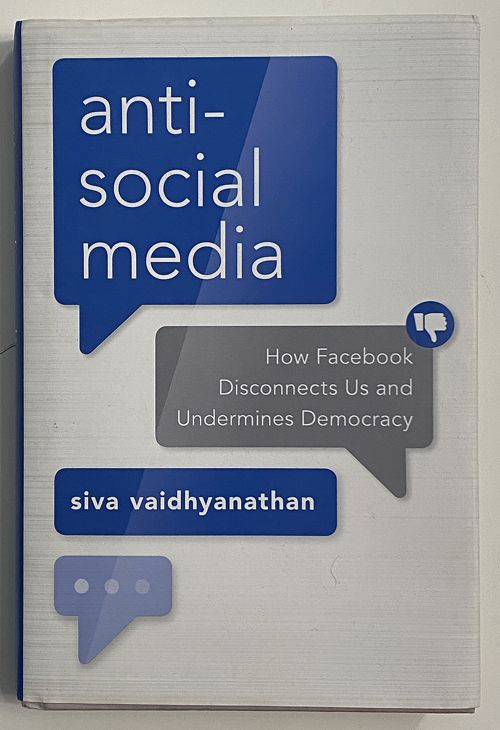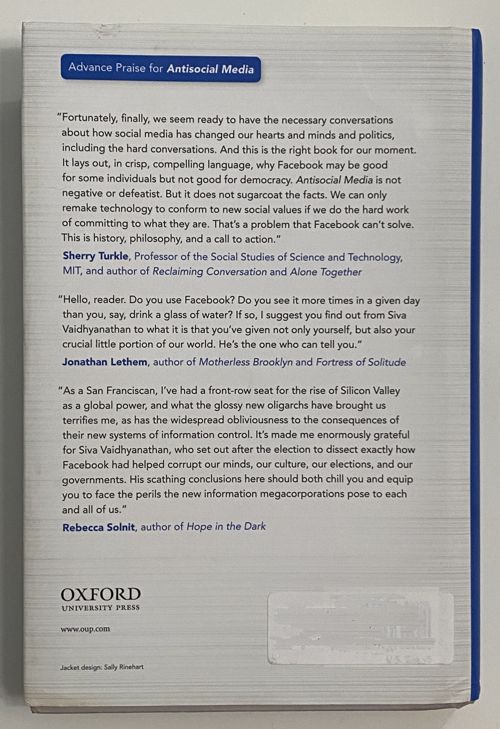Facebook is one of the most popular examples of “social media”, though Antisocial Media: How Facebook Disconnects Us and Undermines Democracy by Siva Vaidhyanathan makes a compelling claim that the way Facebook operates is in fact antisocial, predatory, and divisive.
The second chapter details that the author, a professor of media studies, is an established cultural historian and media scholar–a case could be made that this chapter could have led the book, as this gives weight and credibility for the author’s largely critical analysis of Facebook. Certainly Facebook is not the lone social media provider guilty of problematic behavior, but as one of the largest it is the Frankenstein’s monster that gets noticed when running astray. The book’s main message is that while the initial motivations of Facebook were altruistic–connect with your friends, share pics and messages!–in its growth Facebook’s business model has distorted those initial benign intentions.
Not just Facebook–any app or service that is “free” needs some way to generate revenue. If users do not pay for the service, then one method these social media sites use to generate revenue is to monetize their users. The popular adage is if you aren’t paying for a service then you are the product being sold. In the case of Facebook, they are in fact monetizing you–more specifically the data and attention you give to their website–and thus there is a tension created by this business model that results in Facebook not always keeping your (the user’s) best interests in mind. Unfortunately “surveillance capitalism” is a now a thing.
This book is a welcome combination of being scholarly (with lots of notes and citations) as well as being accessible. For example, in the third chapter the author compares the philosophy of friends described in Aristotle’s writings to the implementation done in Facebook. I could not help but wonder if GooglePlus had in fact debuted in 2016 without political advertisements, whether it would have met a different fate. Google Circles was a much closer implementation to Aristotles’ vision of different, and possible unrelated, cadres of friends.
The author is free with his personal commentary and opinions of Facebook’s threat to freedom, democracy, and privacy–those not aligned with the author’s politics will likely not be swayed by his expertise and research. But I think the author’s goal is to situate Facebook’s specific behaviors within the broader historical, legal, and political context. Such issues are certainly up for debate, but this context-setting may be useful for those not aware of why services like Facebook may be problematic. Overall, Antisocial Media: How Facebook Disconnects Us and Undermines Democracy is definitely worth a read to consider how social media affects and reflects our cultural desires and intentions.
- Pricing and Availability on Amazon: Antisocial Media: How Facebook Disconnects Us and Undermines Democracy
NOTE: I am an independent product reviewer–if I don’t like the product I say so, and if I do like the product I say so. If you end up purchasing something from a link on my site, I may receive, at no additional cost to you, a small commission. Thank you for your support!

